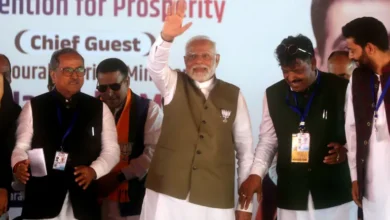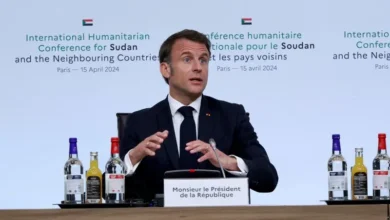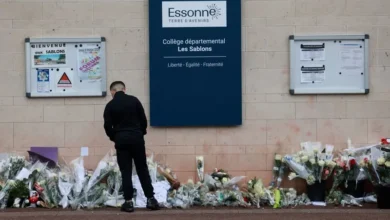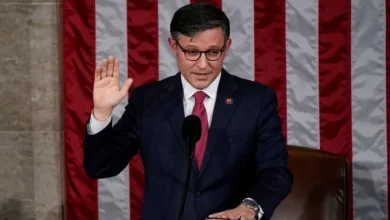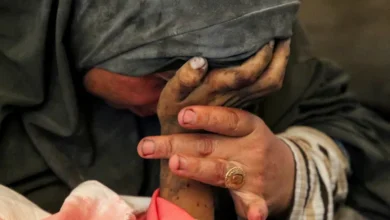Namibia elections 2024: Who’s in the running and what’s at stake?
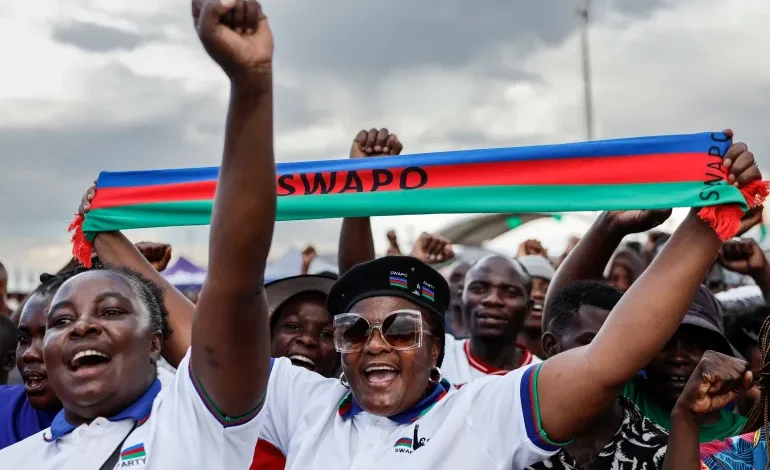
Amid a wave of historic election upsets in Southern Africa, Namibians will go to the polls this week to vote in presidential and parliamentary elections set to be the most competitive and tightly contested yet.
The vote on Wednesday comes after independence-era liberation parties that long held onto power were kicked out in Botswana and crippled in South Africa earlier this year. In Mozambique, the governing Frelimo party’s recent win has led to ongoing deadly protests amid allegations of electoral manipulation.
A newcomer party is set to further loosen the grip of the governing SWAPO (South West Africa People’s Organisation) Party of Namibia. The party has governed the country since independence from apartheid South Africa in 1990.
Increasing dissatisfaction among the youth could mean that the party risks losing the presidency and parliamentary majority for the first time. Its vote share has declined rapidly over the last two elections.
However, analysts say that although SWAPO faces the same issues as its counterparts in neighbouring countries, the Namibian opposition lacks coordination.
Namibia is vast but with just 3 million people, making it one of the most-sparsely populated countries in Africa. Its harsh, arid environment is largely unsuitable for living. The country is home to the Kalahari and Namib deserts. Its capital city is Windhoek.
The November 27 vote will be the seventh since independence. Some 1.45 million people are registered to vote.
Here’s all you need to know about who is running and what’s at stake:
How will people vote?
- Some 1.45 million eligible voters will pick the president and members of the National Assembly.
- Twenty-one parties are competing for 96 parliament seats. There are 15 presidential candidates.
- Presidential candidates are required to win more than 50 percent of the vote to secure the top job.
- If no candidate wins the majority vote, the two highest-polling candidates will face off in a second election round. This has never happened in Namibia.Vice President Netumbo Nandi-Ndaitwah (72): She is the governing SWAPO Party’s first female presidential candidate and the favourite to win the election, although analysts say she faces strong competition. If she wins, she will become Namibia’s first female president.
Nandi-Ndaitwah was among a host of SWAPO members actively involved in the country’s fight for independence in exile. She returned from the United Kingdom to join parliament in 1990 and went on to serve as minister with several portfolios over the years. The late President Hage Geingob, who died of cancer in February, picked Nandi-Ndaitwah as deputy prime minister and had selected her as his successor before his passing.
Despite SWAPO’s incumbency, the politician faces several hurdles, analysts say. There is popular dissatisfaction with the party in a highly unequal country where housing and employment remain out of grasp for many, and where corruption is rife. Young people, in particular, don’t believe in SWAPO’s continued power.
While Geingob received more than 80 percent of the votes in 2014, his 2019 share dropped to 56 percent. SWAPO similarly lost a two-thirds majority in parliament in 2019. It was the first time that happened since 1994.
“The allure of the liberation struggle is fading for SWAPO, because many young people can’t remember it, or were born afterwards,” Hopwood of the IPPR said. Also untested is the appetite among Namibia’s male voters for a woman president, the analyst added.
Namibia is one of Africa’s most gender-equal countries. Nearly half of the seats in parliament are held by women, and Prime Minister Saara Kuugongelwa-Amadhila is female. However, the prime minister is appointed, while this would be the first time voters would be electing a woman leader.
Still, Hopwood added, Nandi-Ndaitwah is popularly seen as not corrupt, unlike some of her SWAPO counterparts.
Panduleni Itula (67): Itula was once a SWAPO youth leader before his exile to the UK in the 1970s. There, he studied and practised as a dentist for more than 30 years, and returned to Namibia in 2013.
In the 2019 elections, Itula shook up the political landscape when he ran as an independent candidate against late President Geingob, much to the anger of the SWAPO leadership. Itula managed to clinch a significant 29 percent of the vote. It was not enough to block Geingob’s second-term plans, but it was the best any challenger had done against the governing party.
Itula criticises the SWAPO government for what he describes as endemic corruption and general inefficiency in Namibia. He was expelled from SWAPO in 2020.
Now, he is back under his Independent Patriots for Change (IPC) party. He remains popular, especially among Namibia’s young. Itula has promised economic prosperity for the youth, and wants to reduce corporate taxes so more foreign companies can move to the country.
If young people turn out at the polls, Itula could threaten SWAPO’s chances, as the politician appeals to the youth, analyst Hopwood said. The Namibian Electoral Commission says 91 percent of eligible voters have registered to vote, with many new voters being under 30.
“SWAPO faces a serious challenge from Dr Itula and they’ll be worried ahead of the vote,” Hopwood said.
